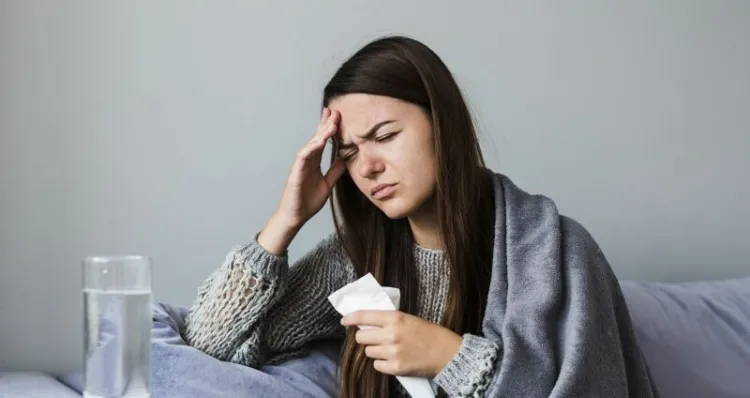"Understanding Influenza: From Mild Symptoms to Serious Complications...!!!
Influenza, commonly known as the flu, is a contagious respiratory illness caused by influenza viruses. It can range from mild to severe and, in some cases, lead to serious complications.

Common Symptoms
-
Fever: Often high, begins suddenly, and usually lasts 3-4 days.
-
Chills: Accompanied by a feeling of coldness and shivering.
-
Cough: Typically a dry, persistent cough.
-
Sore Throat: Pain or irritation in the throat.
-
Runny or Stuffy Nose: Nasal congestion and discharge.
-
Muscle or Body Aches: Often severe and widespread.
-
Headache: A frequent and intense symptom.
-
Fatigue: A profound sense of tiredness and exhaustion.
-
Shortness of Breath: Difficulty breathing, especially in severe cases.
Additional Symptoms (Especially in Children)
-
Vomiting and Diarrhea: Less common in adults but can occur in children.
Differentiating from the Common Cold
The flu shares some symptoms with the common cold but typically comes on suddenly and is more severe. The common cold usually develops gradually and is less likely to cause high fever and severe body aches.
When to Seek Medical Attention
While most people recover from the flu without needing medical care, certain groups are at higher risk for complications, including young children, elderly individuals, pregnant women, and those with chronic medical conditions. Seek medical attention if you or someone you know experiences:
-
Difficulty breathing or shortness of breath.
-
Chest pain or pressure.
-
Severe or persistent vomiting.
-
Sudden dizziness or confusion.
-
Symptoms that improve but then return with fever and worse cough.

Prevention and Care
-
Vaccination: The best way to prevent the flu is to get vaccinated annually.
-
Hygiene: Regular handwashing and avoiding close contact with infected individuals can help reduce the spread of the virus.
-
Rest and Hydration: Adequate rest and staying hydrated are crucial for recovery.
-
Medication: Antiviral medications may be prescribed by a doctor to reduce the severity and duration of symptoms.
What's Your Reaction?

















